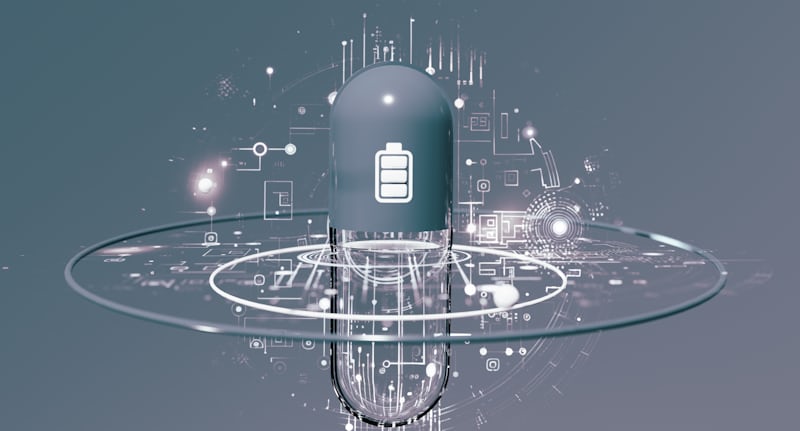Introduction
Technology is revolutionizing all aspects of our life and the medical world is undergoing one of the greatest revolution. Not only are the diagnosis and treatments associated with AI in healthcare improving, but mental health support is also being opened up. Artificial intelligence is providing physicians and patients with more efficient solutions than they ever had with faster decision-making, enhanced data analysis, and personalized care.
The role of AI in Healthcare in overcoming depression in men.
The use of AI in healthcare as an auxiliary to individuals with emotional issues, in particular, male depression, is one of the most discussed ones. Men traditionally tend not to discuss the difficulties in their mind because of the social pressure or stigma. Such silence may complicate the process of identifying the early warning signs of depression. Such systems are also capable of identifying early signs of depression by analyzing patterns of speech, writing styles, as well as facial expressions. Identifying these symptoms at an early stage, AI can provide timely assistance in this regard and motivate men to resort to professional help before their situation deteriorates.
The AI in Treating Mental Health.
The rate of mental health issues such as anxiety, depression and stress-related disorders are on the rise all over the world. AI is making treatment and therapy more available. These applications will not substitute the role of a human therapist, but they will act as a first line treatment, particularly to those who are not comfortable with the idea of a face-to-face therapist.
AI tools have the ability to study the medical history of a patient, his lifestyle and current mood patterns to develop personal treatment plans. This ensures that therapy is more effective and minimal relapse is likely.
Advantages of AI to Doctors and Patients.
AI revolution is not confined to patients only; it also benefits doctors and hospitals.
- Quickier Diagnosis- AI can scan scans, blood reports and test outcomes within a few minutes and identify health complications earlier than conventional methods.
- Improved Decision-Making- Physicians are able to trust the AI suggestions to make the most effective decisions.
- Remote Care- With the use of AI-based telehealth solutions, patients in small towns or rural regions can receive medical assistance.
- Stress Reduction in Doctors- AI also enables the doctors to invest more attention on intricate cases and contact with patients by taking care of routine tasks.
Artificial Intelligence (AI)-based Mental Health Assistance.
The following are some of the AI tools currently in use:
- Chatbots such as Woebot and Wysa that immediately provide emotional support.
- Weaeble tools that track sleep, heart rate and stress levels to detect early signals of burnout.
- AI therapy platforms that provide guided attention, cognitive behavior therapy (CBT), and mood jernling.
- Hospitals have predictive analytics to help identify the patient under high risk of a mental health crisis.
These applications render mental health assistance more available, particularly to people who might not have time or the finances to attend conventional counseling.
Challenges and Concerns
Although the development of AI in healthcare is impressive, it has certain challenges that should be addressed:
- Privacy Problems – Health information should be stored safely to ensure that patients do not feel insecure when using AI.
- Absence of Human Touch AI will not be able to substitute the empathy and human bond during treatment.
- Over-Reliance- AI applications should not be used solely by the patients; they still need professional care.
- Unequal Data- Representation of a Data bias can occur where AI systems are trained using a small amount of data, and it will not be accurate enough to account for all the population.
These issues demonstrate that although AI is a strong technology, it cannot be applied as a substitute to human care.
AI’s in the Future of Mental Health and Healthcare.
In the future, it can be predicted that the relationship between human care and artificial intelligence will prepare the future of medicine. Artificial Intelligence will be more complex, providing real-time affective tracking, anticipating mental health conditions, and even making early warnings about disorders such as depression in men.
In the near future, hospitals will be able to apply AI-driven robots to their working process and therapists will refine their knowledge of their patients with the help of AI. To patients, it translates into more individualized, expedited and efficient care be it in the case of physical ailment or psychological health.
Final Thoughts
AI revolution in healthcare is providing a future of medical and mental health care that is more precise, cheaper, and accessible to all. In the case of depression among men, AI algorithms are eliminating the stigma of depression by providing early diagnosis and around-the-clock observation. Although there are still certain obstacles, it is impossible to deny the benefits of AI. Technology and human compassion have come together to give the healthcare industry a new dawn of healing and hope.




